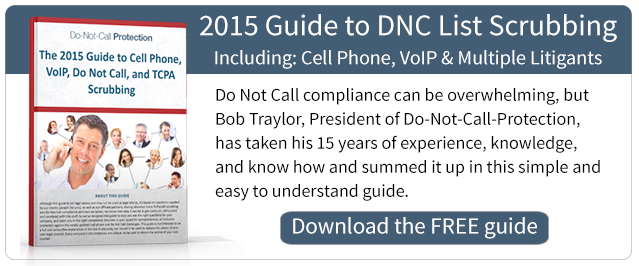![]() B2B lead providers and callers are struggling with a rash of TCPA litigation. Sean Murray, Editor of the B2B internet loan publication
B2B lead providers and callers are struggling with a rash of TCPA litigation. Sean Murray, Editor of the B2B internet loan publication
-
Speed1x
-
Quality720p
Hi! We're Wistia. We provide business video hosting to attract, engage, and delight

Thanks for reporting a problem. We'll attach technical data about this session to help us figure out the issue. Which of these best describes the problem?
Any other details or context?
We asked top TCPA attorney Eric Allen about the 5 “no-call wireless states.”
His response is not legal advice, as you’ll need to contact him directly for that. And each State has language that can change - but he was kind enough to point us in the right direction.
The no wireless States are not a large risk for B2B, but yes, in theory, not all of those have a B2B exemption. I’d have to look at them individually to know which apply to B2B. In any case, if they are using a
My B2B robocall clients that are successful and avoid major legal trouble are the ones who aggressively scrub sells,
In case you're wondering, the five no call cell states are: Arizona, Louisiana, New Jersey, Texas, and Wyoming
Additional B2B Calling Challenges Include:
-
Acquiring leads and reselling them to your clients can be problematic. Where did the lead come from exactly? How many other companies have it? How often has it been called? Can you prove where it came from exactly?
-
“You’ll be getting a call from our loan suppliers” may be too general for your follow-up calls to hold up in court. You'll want to tell businesses the names of companies they can expect to hear from on a set-up call.
-
Proper consent language on the original lead form may be missing. Does your form explicitly say, “Clicking here allows us to call you via automatic telephone dialing system, live operator, text and pre-recorded
call. This is not a condition of a sale.”
As B2B companies struggle with these and other permission calling rules, predatory attorneys continue to have a huge advantage in badgering them with pre-litigation letters asking to settle for $3,000 and up.
When you partner with a top TCPA compliance provider, prosecuting attorneys will have a tendency to walk away.
Most B2B’s aren’t protecting themselves against these call prohibitions at all. Questionable lead sources poisoned with newfound cell numbers from Linked-in and Twitter remain problematic after the October 15'th, 2013 cell law change. Automatic Telephone Dialing Procedures for wireless solicitations go unsupervised. Robocalling with pre-recorded voice messaging without permission becomes rampant.
But once you're properly shielded with a top compliance partner, prosecuting attorneys would rather not tangle with you. Especially when so many other B2B companies are unprotected altogether!
It's all about the money.
You want to be the least tasty fruit on the tree. Because the easiest call cases to prosecute, with the least amount of compliance protections, are the ones prosecuting attorneys and professional consumer litigants tend to act on.
Editors Note: B2B call protection state laws are changing all the time. Some states have "mini-TCPA" call provisions and registrations that need to be considered, including the five states mentioned here. So before proceeding, please double-check with your competent TCPA attorney.
For more information on safer B2B calling call my personal line at 561-317-3001 or email me here - Bob
Related Article:







